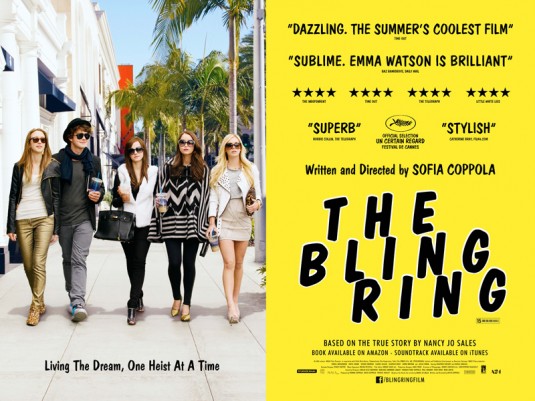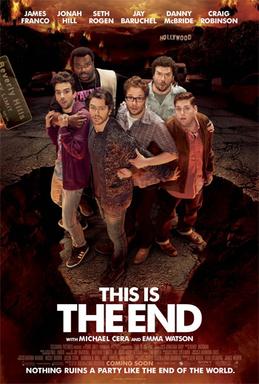Sofia Coppola is a woman who has made a career by telling stories about unlikeable and lost people. Characters such as the spoilt Queen of France and an actor wasting his days in the legendary Chateau Marmont may not exactly appeal to audiences, yet with a mixture of stunning cinematography, clever scriptwriting and perfect musical cues, Coppola presents them in a way that makes us sympathize with, if not even like them. What's noticeable about The Bling Ring is that this ability to show humanity in even the most awful and hopeless people in a flattering light that has run through all of Coppola's films is missing here. Without it, she has succeeded in creating a film that is every bit as hollow and materialistic as the characters within it.
It's not the topic of wealth that causes Coppola to go astray, as she's dealt with it well in a previous (and unjustly underrated) film, Marie Antoinette. By setting a scene consisting of hundreds of pairs of shoes, mountains of cake and fountains of champagne to Bow Wow Wow's "I Want Candy", she manages to create an image that is both satirical and lustworthy. Rather it's the viewpoint that she chooses to take towards the film's protagonists, the titular Bling Ring, a group of teenage wannabe A-listers turned thieves. Instead of following her usual formula of showing the protagonists at their very worst, wallowing in self-pity or egotistical self-love, before showing us that hey, these are people with neurosis's and weaknesses too, cut them some slack, she attempts omniscience by presenting these the teens and their livestyles to us without passing comment on their actions. In every interview I have read with her proceeding the film's release, she's made it very clear that she doesn't want to pass judgement on the Bling Ring, and would rather the audience make their minds up for themselves. Yet this is exactly the sort of film that needs to be subjective. Without Coppola taking a clear stance against the Bling Ring, telling us whether or not they should be detested or envied, the film has little structure, and becomes simply a series of teenagers breaking into houses, cooing over clothes and getting drunk, before FINALLY getting their comeuppance.
It's not just Coppola's viewpoint that makes this film weak. Visually, it's lacking the light touch and beauty of her other films. The Virgin Suicides is a film that audiences adore not just for its universal themes of wasted youth, angst and love, but for its dreamy visuals. As Virgin Suicides and Marie Antoinette are set in the past, it makes perfect sense for them to be filmed in a dreamlike haze of nostalgia. But Lost in Translation and Somewhere, both firmly rooted in the present day, are still endlessly interesting to look at. Bling Ring on the other hand, is as conservative as they come, mainly lacking Coppola's distinctive camera talents. It could almost pass for a standard Hollywood film.
I can without a doubt confirm that The Bling Ring is the weak link in Coppola's otherwise flawless chain of films. While of course the film's point is to question the media-obsessed world we live in, the film's attempts to delve into the world of celebrity, such as a slideshow of images of Paris Hilton, looking as though they were created on Microsoft Powerpoint, fail miserably. Perhaps another year, and another time, and the gang's (admittedly real, and fairly impressive for a group of dumb teenagers) exploits may seem more impressive and dangerous. But compared to Harmony Korine's pastel daze of Spring Breakers, they seem like nothing. The title may be bling, but sadly the film does little to dazzle an audience.
Grace Barber-Plentie



